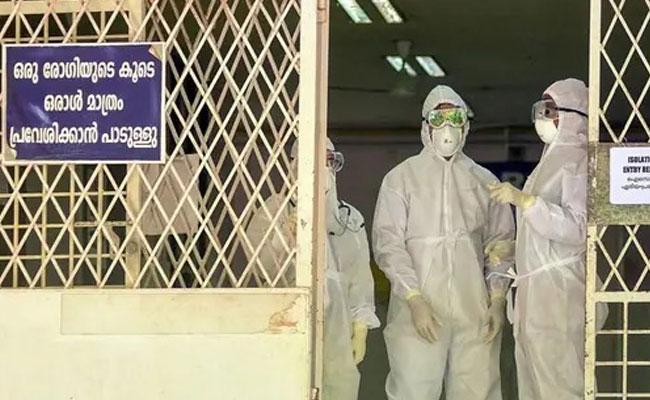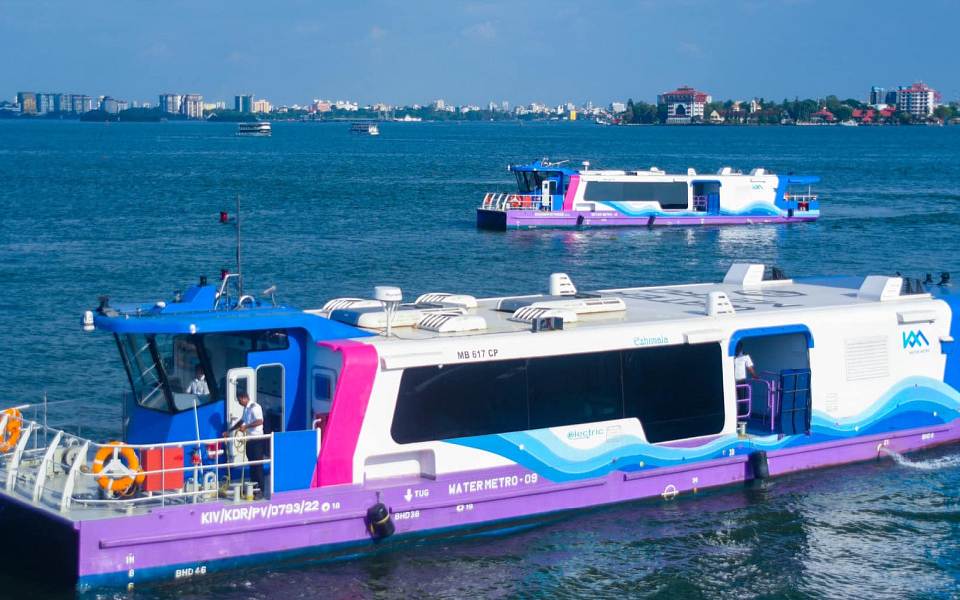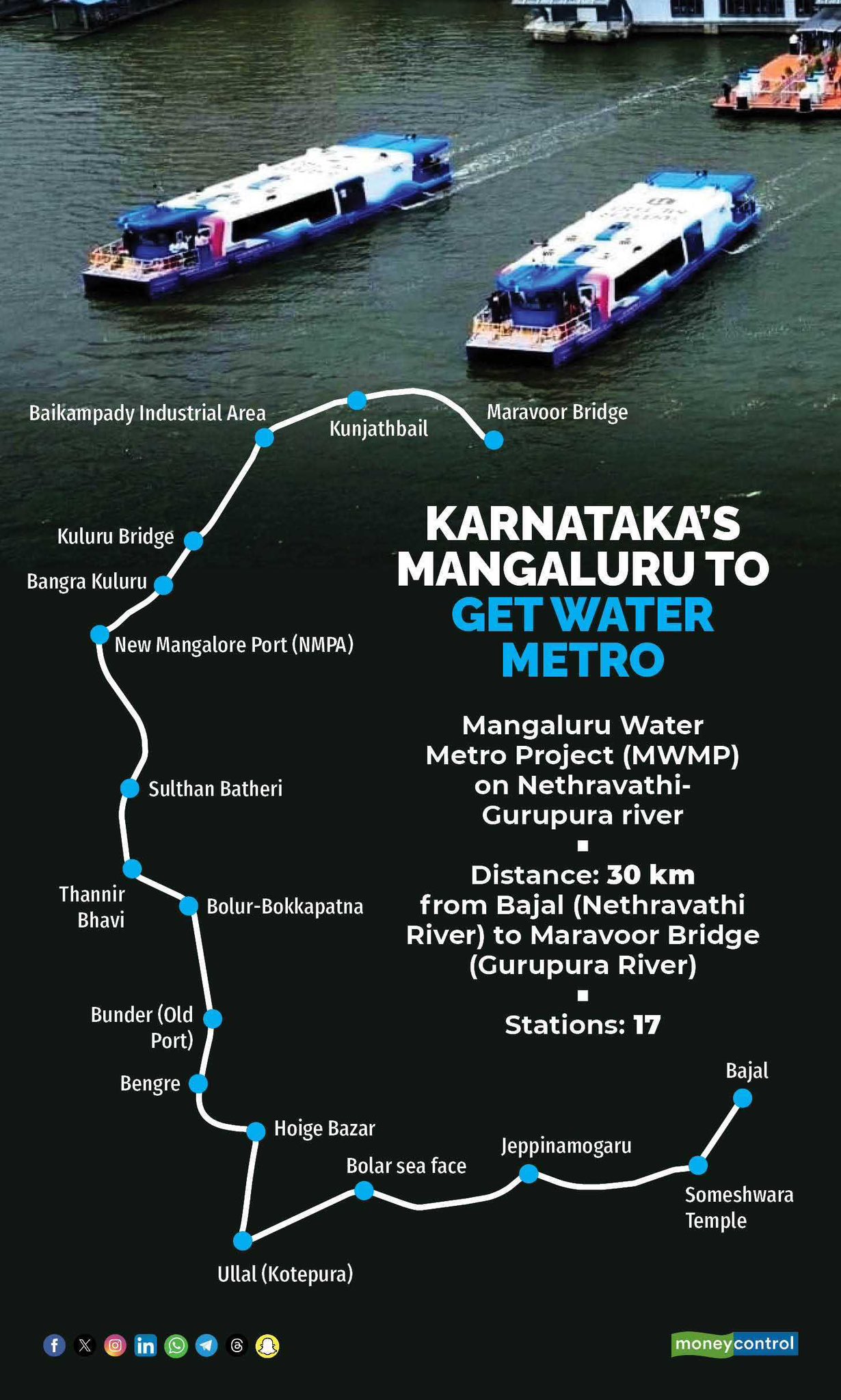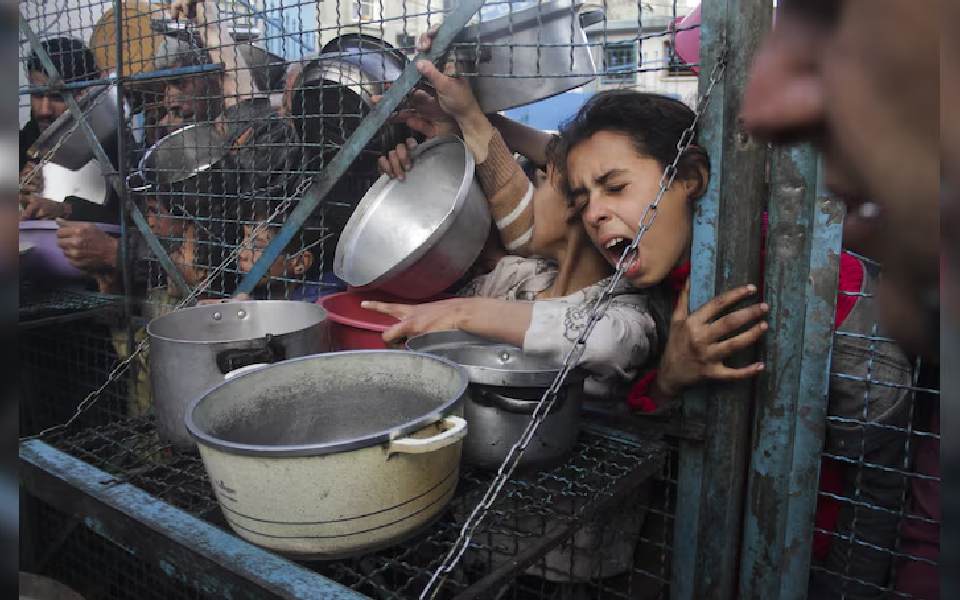Kozhikode (PTI): After two "unnatural deaths" were reported from Kozhikode district, the Kerala government has sent five samples to the National Institute of Virology in Pune to test for the presence of the deadly Nipah virus.
A district-wide health alert was issued on Monday after two deaths were reported, suspected to be due to Nipah virus infection.
The samples sent for testing to the virology institute includes that of one of the deceased and four of his kin.
In a Facebook post on Tuesday, Chief Minister Pinarayi Vijayan said the government was viewing the two deaths seriously and the health department had issued an alert in the district over the suspicion that Nipah virus had caused the deaths.
He also said that there was no need to worry as most of those who were in close contact with the deceased were under treatment.
Earlier in the day, State Health Minister Veena George reached the district and chaired a high-level meeting to evaluate the situation and told the media the government was taking all precautionary steps in case the results showed the presence of Nipah virus.
She informed that the contact tracing of the deceased persons has been initiated to identify high-risk contacts.
"At this moment, we have taken all the precautionary steps based on suspicion that the death may be due to Nipah virus. We have conducted preliminary tests here. But it can be confirmed only after the samples are tested at Pune NIV," she said.
She also said the first death occurred at a private hospital and victim's children, brother and his kin are also currently under treatment for fever.
The minister further said numerous persons visited the hospital and contact tracing had begun.
The Health department has instructed to set up an isolation centre at Kozhikode Medical College hospital and to increase human resources accordingly.
Deaths due to Nipah virus infection were reported in Kozhikode district in 2018 and 2021.
The first Nipah virus outbreak in south India was reported from Kozhikode on May 19, 2018.
According to the World Health Organisation (WHO), Nipah virus infection is a zoonotic illness that is transmitted to people from animals and can also be transmitted through contaminated food or directly from person-to-person.
Among infected people, it causes a range of illnesses, from asymptomatic (subclinical) infection to acute respiratory illness and fatal encephalitis.
The virus can also cause severe disease in animals such as pigs, resulting in significant economic losses for farmers, according to WHO.
Let the Truth be known. If you read VB and like VB, please be a VB Supporter and Help us deliver the Truth to one and all.
Mangaluru (Karnataka), Nov 4: After being endowed with multi connectivity facilities like three national highways, port and airport, Mangaluru city is now looking at a significant move towards sustainable urban mobility as the Karnataka Maritime Board (KMB) has announced plans for the Mangaluru Water Metro Project (MWMP), officials said on Monday.
This ambitious initiative aims to transform public transportation in the state, utilising National Waterways to connect areas along the Nethravathi (NW-74) and Gurupura (NW-43) rivers, they said.
Set to become India's second-largest water transport system after Kochi, the project promises an eco-friendly, economical and efficient mode of travel, the officials said.
According to officials, the MWMP will connect isolated communities from Bajal to Maravoor, enhancing accessibility and promoting the holistic development of these regions. The initiative is expected to boost local livelihoods and improve the standard of living through integrated transport networks.
According to the project report available with PTI, the MWMP will be rolled out in phases, with the initial stretch covering 30 kilometres along the Nethravathi and Gurupura river backwaters.
The priority route, beginning at Bajal on the Nethravathi and extending to the Maravoor Bridge on the Gurupura, will feature around 17 modern Metro stations.
Key locations such as Someshwara Temple, Ullal and the New Mangalore Port are included in the proposed route. State-of-the-art electric and diesel catamaran boats will be deployed, equipped with essential amenities to ensure a high standard of comfort and operational efficiency.
A comprehensive Feasibility Report (FR) will assess the project's viability, presenting a detailed cost-benefit analysis, market potential, operational strategies and environmental considerations.
"The report will objectively evaluate the project's merits and challenges, providing crucial information for decision-makers, stakeholders and investors," they said.
Officials in the port and fisheries subdivision told PTI that key areas of analysis has been based on assessing the potential to decongest old port areas, exploring the feasibility of cargo movement using Roll-on/Roll-off (Ro-Ro) water metros, examining water level variations influenced by tidal flows, integration with feeder services to ensure seamless last-mile connectivity, demand forecasts over a 25-year period, based on extensive socio-economic research of usage and utility of the MWMP.
The project's Terms of Reference (ToR) emphasise sustainable development, involving thorough site identification, user demand assessments and environmental impact studies. Comprehensive surveys such as LIDAR mapping, bathymetric studies and topographical analysis will ensure accurate planning and implementation, the officials told.
Furthermore, technical collaborations with national institutes of repute will support studies on wave tranquillity, vessel height clearance and infrastructure recommendations for jetties and repair facilities, they said.
A detailed environmental monitoring programme will assess air and water quality, noise levels and aquatic biodiversity in line with Ministry of Environment, Forest, and Climate Change (MOEF&CC) guidelines, the officials added.
The officials of the Maritime Board said the MWMP promises significant economic and environmental benefits, from easing traffic congestion to reducing air pollution. The project will also explore non-fare revenue streams and develop models to ensure financial sustainability.
A socio-economic impact assessment will measure the project's contribution to regional development, backed by projected revenue from passenger fares and ancillary services, a senior official said.
The Board also aims at championing cleaner and greener transportation and to set a precedent for sustainable urban mobility, positioning Mangaluru as a progressive city that leverages its waterways, he added.






